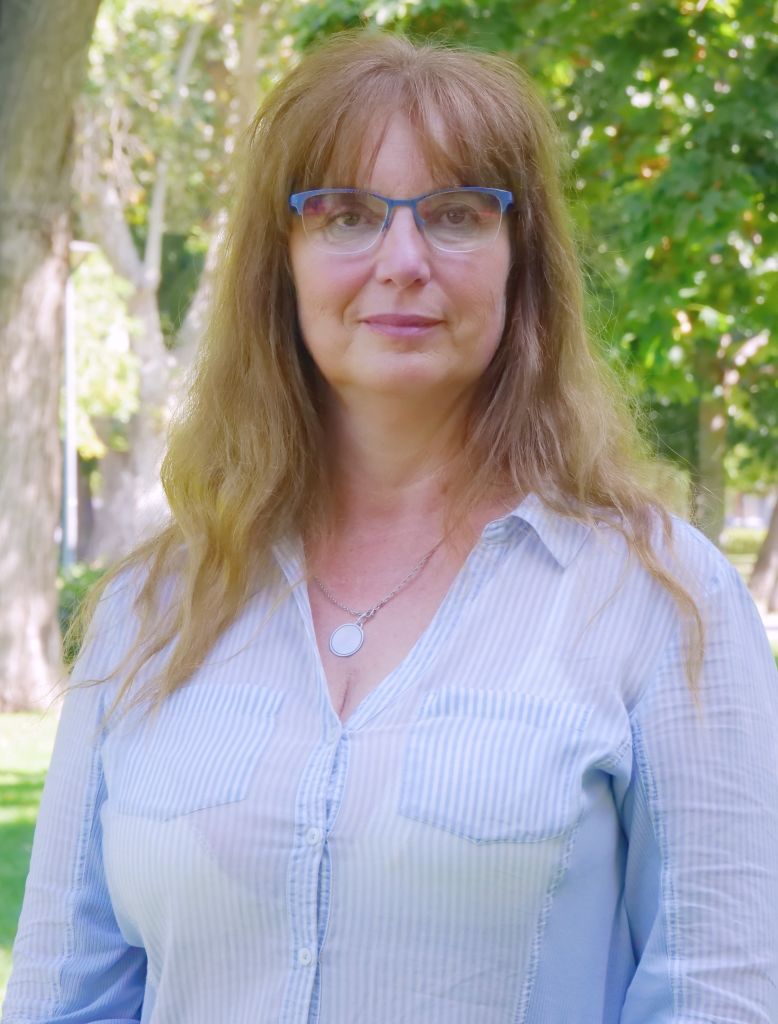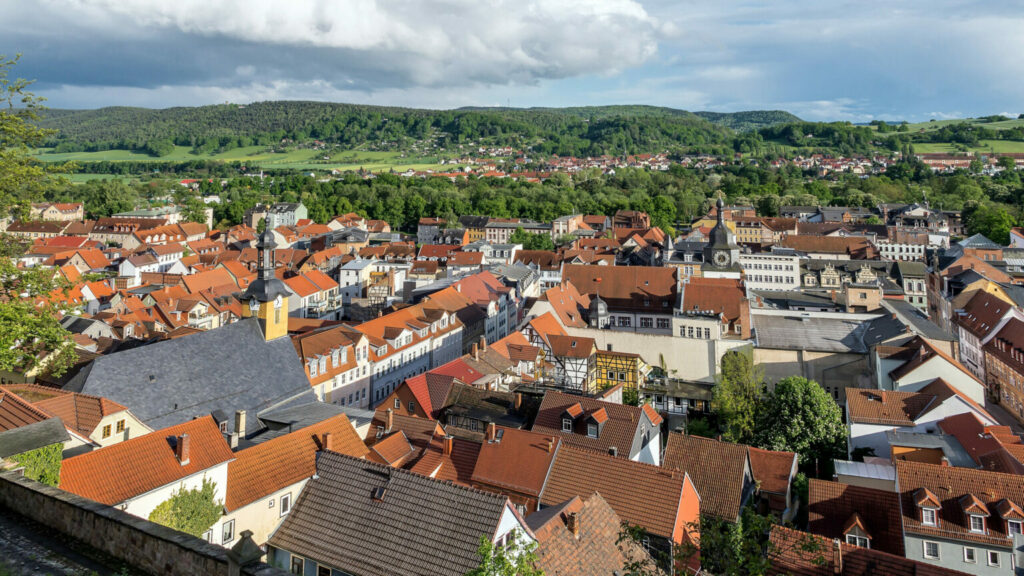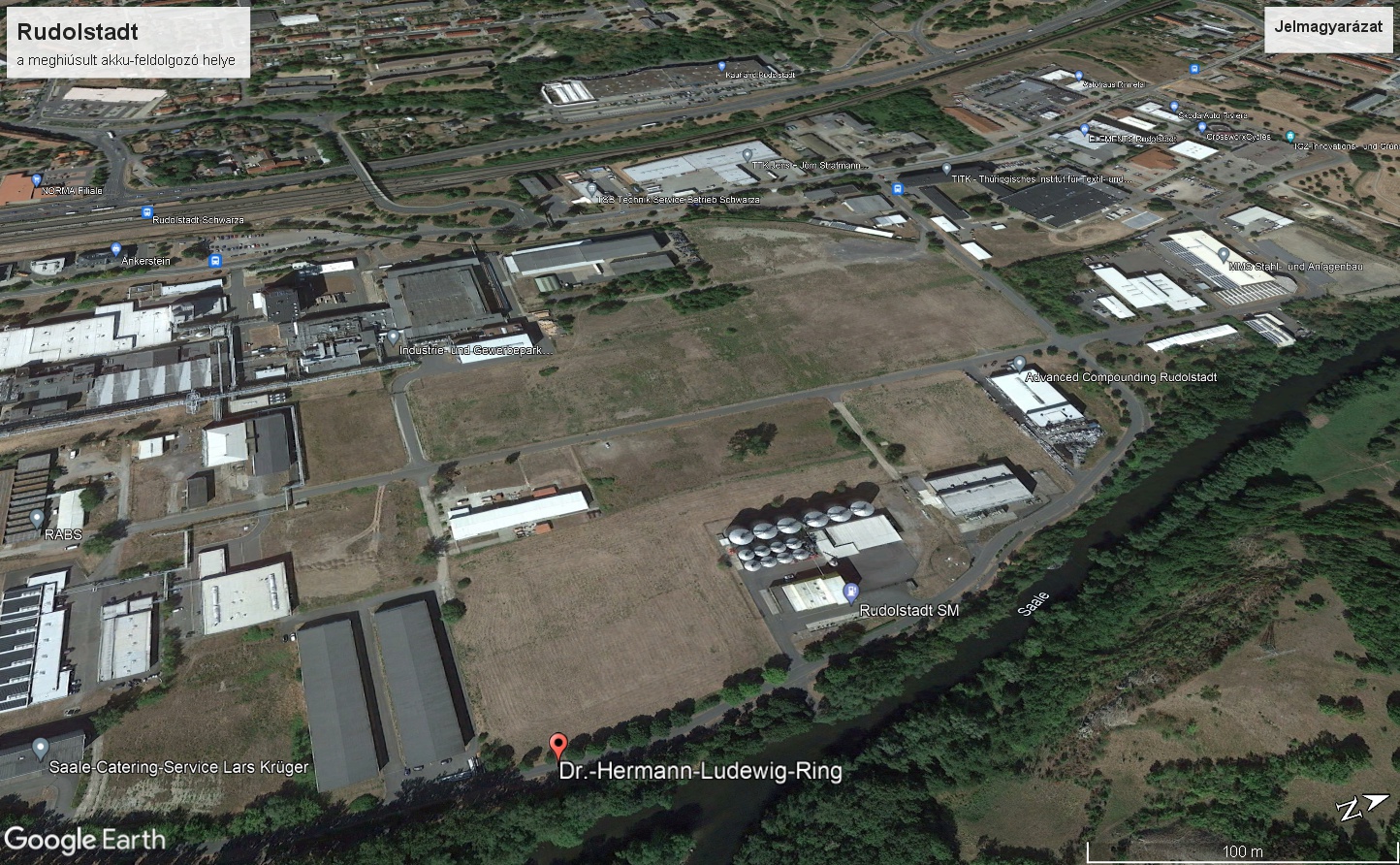The https://english.atlatszo.hu use cookies to track and profile customers such as action tags and pixel tracking on our website to assist our marketing. On our website we use technical, analytical, marketing and preference cookies. These are necessary for our site to work properly and to give us inforamation about how our site is used. See Cookies Policy
Company repeatedly fined in Hungary will not build a battery-processing plant in Germany because of local protests
The South Korean company SungEel Hitech planned to set up a battery recycling factory in Rudolstadt, Thuringia, Germany, but its Hungarian plants were fined for endangering the environment. The recycling company receives huge quantities of batteries for electric vehicles that have been discarded. Protests against the construction of the plant in Germany led the company to withdraw its application for a permit. In Hungary, however, the authorities have given SungEel’s plant in Bátonyterenye a green light, despite the irregularities found.
Last summer, press reports emerged that South Korean SungEel Hitech, together with Samsung C&T, was to set up a new battery recycling plant in Rudolstadt, Thuringia, Germany.

SungEel set up its first European sites in Hungary – in Szigetszentmiklós and Bátonyterenye. In addition to Hungary, the company has plants in India, Malaysia, China, and South Korea. A few weeks ago, we wrote that the Hungarian authorities had repeatedly fined the company for serious hazards to workers and disaster management offences.
The Rudolstadt project has had strong opponents from the start of the licensing procedure. These included the local branch of Germany’s largest environmental organisation, the Naturschutzbund Deutschland (NABU), and the local civil society in Rudolstadt, which protested against the plant.
Opponents of the project in Thuringia argue that the Saale river valley is an extremely sensitive area whose conservation values would be seriously threatened by the planned processing of 44,000 tonnes of scrap batteries per year. The air pollutants (dioxins, heavy metals, etc.) generated during the drying and incineration processes would pose significant health risks, they claimed. Noise pollution from the plant, contamination of the Saale river water, and the transport of 83 tonnes of hazardous waste per day, which is assumed based on the EIA data, were also among the objections raised.
Concerns were not allayed by the 670-page environmental impact assessment of the project and the public information forum held by the company.
SungEel finally withdrew its licence application at the end of March, but according to South Korean press reports, it is looking for a new location in Germany.
The company’s withdrawal was welcomed by Steffen Post, the local head of the Saalfeld-Rudolstadt BUND. He said that the licensing procedure had not taken sufficient account of the risks of environmental damage and that the plant’s operating procedures had not been made public. „There should be economic investment, but not at the expense of nature and the environment” said Steffen Post.
The company’s plans in Poland and the USA have also failed
The South Korean company had originally planned to build its third European factory in Złotoryja Poland, but local opposition prevented it. The plant was eventually built in another Polish villagem Bukowice, where a delegation from the city of Rudolstadt, led by the mayor, recently visited. Local protests prevented the construction of SungEel’s battery processing plant in Endicott, New York, USA in 2021.
Protesters in Germany have also heard about SungEel’s operations in Hungary. Following the story by Átlátszó, the EUWID news portal reported that the Hungarian authorities have fined the Hungarian company SungEel Hitech Hungary Kft. for the explosion at the company’s plant, which injured three people, and for exposing workers to hazardous substances for months.
Company processing scrap batteries endangered its workers with carcinogenic substances – English
A company in Bátonyterénye that processes discarded batteries repeatedly violates disaster prevention and occupational safety regulations.
Hungarian authorities have given the green light for the plant
Last summer, a shredder exploded at SungEel Hitech Hungary Kft’s plant in Bátonyterenye, injuring four people. A full environmental review was launched and the investigation document found that the plant had been fined twice for the improper handling of hazardous waste: once for HUF 5.4 million and once for HUF 8.9 million.
In addition, groundwater tests have shown several samples to be contaminated above limit values. Aliphatic hydrocarbons were detected in groundwater, while the Zagyva River and its floodplain, which is part of an ecological corridor, are only 50 metres from the plant.
The decision to close the procedure, therefore, required the company to prepare a monitoring plan for groundwater tests. But the authority has granted SungEel Hitech Hungary Kft. an environmental operating permit to process 23 500 tonnes of hazardous waste and 4500 tonnes of non-hazardous waste per year until 2027.
Written and translated by Zsuzsa Bodnár. The original, Hungarian version of this story can be found here.
Share:
Your support matters. Your donation helps us to uncover the truth.
- PayPal
- Bank transfer
- Patreon
- Benevity
Support our work with a PayPal donation to the Átlátszónet Foundation! Thank you.
Support our work by bank transfer to the account of the Átlátszónet Foundation. Please add in the comments: “Donation”
Beneficiary: Átlátszónet Alapítvány, bank name and address: Raiffeisen Bank, H-1054 Budapest, Akadémia utca 6.
EUR: IBAN HU36 1201 1265 0142 5189 0040 0002
USD: IBAN HU36 1201 1265 0142 5189 0050 0009
HUF: IBAN HU78 1201 1265 0142 5189 0030 0005
SWIFT: UBRTHUHB
Be a follower on Patreon
Support us on Benevity!


